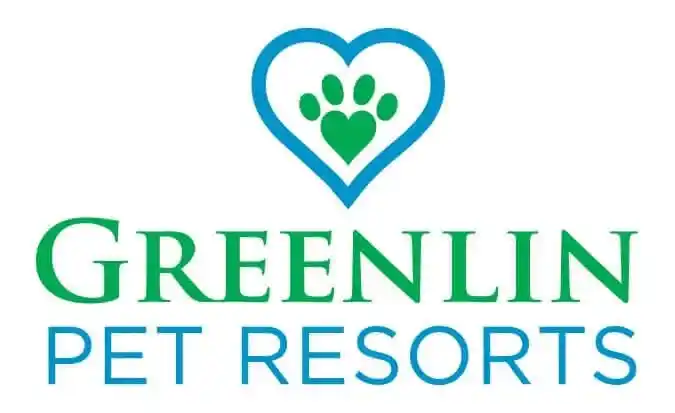Preparing Your Dog for Vet Visits

Going to the vet for a simple check-up can be an unpleasant experience for many pets. Just like how some people don’t like heights or spiders, dogs can have fears that impact their behaviors and feelings.
Even though annual check-ups are essential for preserving their health, a dog won’t register that the process is for their well-being, which is why every pet should visit their vet at least once per year. All they may focus on is the new environment, one overwhelmingly filled with new smells, sights, people, and other animals.
As your pet ages, you may expect them to become used to vet visits, ultimately growing desensitized. Unfortunately, the process of making the trip can instead turn into a long-lasting fear for dogs if they experience trauma during one or multiple visits.
The good news is that there are many ways for you to help your dog face its fears and learn to be a brave boy or girl when going to the vet.
Preparing a Dog for Vet Visits Before the Day Even Comes
A sterile smell, bright lights, and invasive prodding, oh my! Some dogs tolerate these elements of vet visits, but other canines may get overwhelmed quickly.
They could even start giving their human a hard time after getting any hints that a vet visit may be in their immediate future.
Fortunately, there are some things that you can do as a pet parent to prepare your pup for their trip to the vet. The goal is to find a productive strategy that can build their trust.
Generally, dogs develop fears and anxiety around experiences that cause them to feel like they are in danger or in a highly uncomfortable setting. The trick to softening the blow is to use repetition and assurance while also redirecting their attention towards more positive things.
Exposing your dog to the steps that they’ll take throughout the vet visit day, for example, can help them realize that their vet is not a threat.
Practice Socialization and Handling
At the vet office, your dog will undergo a general exam where a specialist looks into their ears, mouth, and takes their temperature. All of this can be physically overwhelming for a dog, especially when they are being touched by someone they don’t know or trust.
Getting your dog used to this sensory bombardment means they are less likely to be stressed.
Start by building up your dog’s tolerance for touching. You can do this by massaging their ears, practicing clipping their paws, and offering more affectionate petting.
Then, only when they are non-reactive to this physical stimulation invite others to pet them. Slowly, as the dog becomes more comfortable with different people touching them, their anxiety around physical stimulation may subside.
You can even stage “mock exams” with household members and friends, just so the experience of being touched in certain areas isn’t as novel or shocking. Watch the dog’s reactions closely, and offer praise or treats when they are able to remain calm and not get indignant at their pretend vet.
Get Them Familiarized With Their Leash or Carrier
Don’t try out the fancy new carrier on vet day, but instead, go with their familiar choice. Give your dog time to feel comfortable with the equipment so it isn’t another new thing for them to learn about and process.
If you have a big dog who is not fully leash trained and may still be reactive to new people or pets, call the office before you visit to inform them of your situation. It can also benefit you and your pup to schedule the appointment for a slow-traffic time, like early in the morning or during weekdays.
You can always call your local vet to ask about the best times to bring in a skittish or hyper-reactive dog.
The Importance of Car Training
Training your dog to safely sit through a car ride can help them be less afraid from the moment the journey starts.
If your dog seldom gets in a car, then they may feel anxious just about the car ride alone. This anxiety can set them up for overstimulation and, in turn, defensive behaviors once they arrive at the vet’s office.
Time in the car itself can also expose your dog to new sights, smells, and sounds in their local environment, all of which can be tough to process.
You can help temper their reaction to all of the above simply by taking them on car rides that do not result in a vet visit! Your dog can learn to get used to the experience of riding in the car and processing new sensations by going on regular trips throughout their routine.
These trips can involve errands (BTW never leave your dog alone in the vehicle), or take them on a ride purely for enjoyment’s sake.
During any trip, ensure that they are safe and secure. While restraints for your dog aren’t required in the Harrisburg area (or across the state), it is the safest option.
In an accident, an unrestrained dog will have no protection from crash forces ejecting them out of their seat. After all, the last thing you want is to turn a routine checkup into a medical emergency for both you and your pup!
Preparing Your Questions and Concerns
On the day of your dog’s vet visit, it is natural to have questions. For a routine check-up, you may want to know more about certain behaviors your pup is exhibiting.
On the other hand, if you’re visiting due to a specific ailment, you may wonder about how it affects their overall health and what options you have for treatment.
Inevitably, you will get distracted and forget some of these questions during the visit. To prevent this scenario, prepare a list of talking points so you have an organized outline of your biggest concerns.
On this sheet, it can also be beneficial to have your pup’s potty and eating habits of the last few weeks, their demeanor, and any noticeable changes documented.
Same-Day Vet Visit Tips for Dogs
As you get your pup ready to go to the vet’s office, take these steps to help the day unfold smoothly:
- Call your vet office ahead of time: Even if you made your appointment in advance, call the office on the day of the visit about 20 minutes before you arrive. Let the receptionist know about your dog’s current condition and how they are handling the dog vet preparation. If you give your vet office enough notice, they may be equipped to prepare a private room while you are on your way. That way, your dog can avoid unnecessary time in the waiting area.
- Exercise with your dog: Before you take your dog to visit their vet, help them expel some energy by playing outside or going for a walk. Exercise can help promote relaxation and ease anxiety, which can help them stay calm during their visit. Creating positive associations before a visit can help your dog learn to associate positive emotions with the vet, as well.
- Bring comforting items: A familiar item like a bed, blanket, or toy can make all the difference in your dog’s attitude toward the vet. The smell of home collected on the comfort items can provide a sense of security, making the experience less overwhelming and intimidating.
- Arrive early: Give yourself more time than you anticipate needing for check-in. You want to avoid making your dog feel rushed or hurried through the process, as that can heighten feelings of anxiety and lead to defensive behaviors like barking. Giving them a few extra minutes to assess their surroundings, on the other hand, can help instill confidence as well as comfort.
Reward Your Pup After Good Behavior at The Vet
After being poked, prodded, and thoroughly examined, don’t forget to show your dog extra love and affection. For their troubles, offer high-value treats and lots of praise.
You can keep these treats on hand and give them out once your dog leaves the vet’s office. Everyone enjoys a snack on the way home!
There are studies confirming the power of high-value treats as rewards for canines in training. When compared to praise and petting, food rewards yield faster results for training in the early stages.
While your dog appreciates love and affection, the best way to a canine’s heart is often through their stomach!
How Pets Can Feel Their Human’s Stress
Even if you try your best to hide it, chances are your pet knows when you are stressed. In fact, they smell it!
As anxiety grows and a person becomes stressed, the sweat in their body will begin to smell different. Your dog can register this change and identify when their human is panicked.
Some pets may even pick up on their owner’s stress about vet visit day, triggering their own anxieties to kick in.
While easier said than done, one of the best things you can do for your dog on vet day is remember to keep yourself calm. Preparing in advance using the above tips will help you not feel rushed, going a long way toward relieving stress.
You can also practice mindfulness to remain focused on the task at hand and avoid the worry or agitation that can come from running what is often a stressful errand.
Socialization Training Can Prepare a Dog Vet Visits and More
The more time your dog spends exploring the world — processing new sights, smells, and sounds — the more confident they’ll be when they encounter something new and potentially overwhelming.
Socialization is an important aspect of giving a dog a well-rounded life, so the experienced dog trainers at Greenlin Pet Resorts in Harrisburg utilize tried-and-true strategies to help the dog build up their confidence around new stimuli and environments. You can even build a custom training regimen to develop behaviors and commands that make going to the vet much easier.
Greenlin also offers dog daycare in Harrisburg to help them burn off their energy or get more used to unfamiliar encounters so they can feel more confident and calm in new situations.
To talk with a canine specialist about how socialization training can impact your dog’s behavior and help them face new stimuli, call (717) 678-7326, contact us online, or visit our facility on North Cameron Street near downtown Harrisburg for a personal tour.
